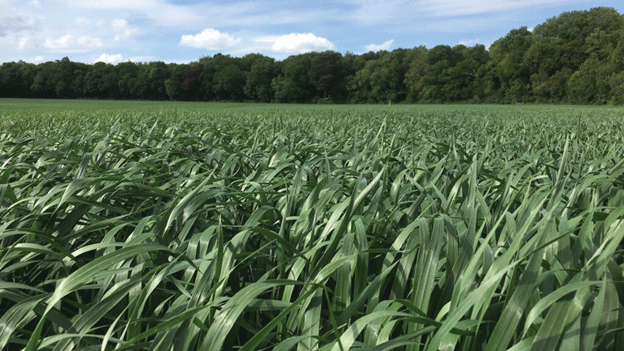How a Tech Trial is Transforming Wheat Management on a Lincolnshire Estate
In an era of rising input costs and environmental concerns, precision agriculture is offering new ways to optimize crop management. At Revesby Estate, a Digital Technology Farm (DTF) trial conducted by agronomy firm Agrii is testing how digital tools and data-driven decisions can enhance wheat production efficiency. The initial results provide insights into nitrogen use, fungicide effectiveness, and overall farm profitability.
The Trial Setup
Revesby Estate, one of four Digital Technology Farms in the UK, split a 40-hectare winter wheat field into two management zones:
- Traditional Management: Led by farm manager Peter Cartwright, using standard fertilization and fungicide application practices.
- DTF Management: Overseen by Agrii’s Jonathan Trotter and Lucy Cottingham, using real-time data to optimize crop nutrition, nitrogen efficiency, and fungicide timing.
At the end of the season, a cost-benefit analysis compared the two approaches.
Key Findings from Year One
- Input Costs and Yield Differences
- The DTF-managed area had £8.65/ha lower input costs but also produced 1t/ha less wheat than the traditionally managed section.
- The lower yield was linked to fungicide choice, as the DTF approach did not include Syngenta’s pydiflumetofen (Miravis Plus), which contributed to better yield retention in the traditional system.
- A key observation was earlier senescence in the DTF side, further highlighting the differences in fungicide performance.
- Fungicide Effectiveness
- In Zone E (no fertilizer applied), fungicide application on the traditional side contributed 2.83t/ha to total yield, whereas the DTF approach only added 1.6t/ha, a 1.23t/ha difference.
- Additional Agrii trials confirmed that pydiflumetofen increases yields by approximately 1t/ha, suggesting a potential refinement for future DTF strategies.
- Nitrogen Use Efficiency (NUE)
- Both management strategies achieved an average NUE of 48%, but the DTF approach did so with lower nitrogen inputs (reducing costs by 6-24% depending on the zone).
- In the zero-fungicide zone, NUE on the DTF side was 43%, outperforming the 33% recorded in the traditional system.
- The DTF nitrogen strategy was calculated to be £33.91/ha more effective than the traditional approach, suggesting a more sustainable and cost-efficient method for fertilizer management.
What This Means for Future Wheat Production
The trial highlights both opportunities and challenges in adopting digital agronomy. While precision nitrogen management proved cost-effective and environmentally sustainable, fungicide selection needs further refinement to maintain yields.
If lessons from this trial are fully integrated across Revesby Estate’s wheat-growing area, the financial benefit could exceed £24,000 per year—a strong case for combining technology-driven decision-making with proven agronomic practices.
The Revesby Estate trial demonstrates the real-world impact of precision agriculture, showing that targeted nitrogen management can reduce costs while maintaining efficiency. However, the study also underscores the importance of selecting the right fungicide strategies to maximize both yield and profitability. As more farms adopt digital agronomy, refining these approaches will be crucial for improving both economic and environmental sustainability in wheat production.
Error





